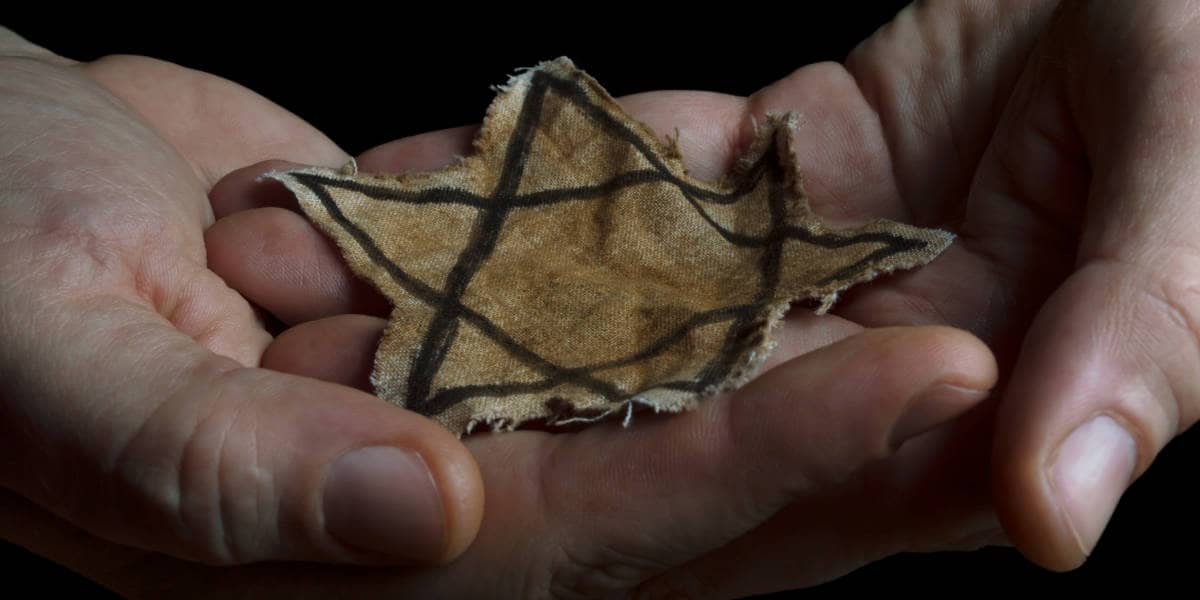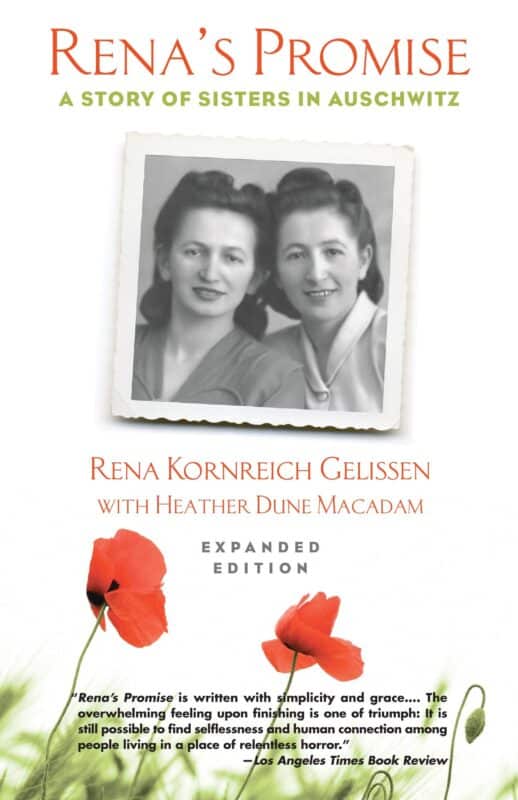You can learn a lot from Holocaust books. These books tell the story of the most gruesome time in history that shouldn’t be forgotten.
It has been 75 years since the end of the second world war, and yet the horrors from that time are still considered to be a living memory for some.
Many of the survivors from the concentration camps have been scattered across the world by now with their descendants fighting for us to reflect and remember the horrors that occurred.
The reason for this, to remember what happened and in the memory of those who didn’t survive, ensure that it never happens again.
However, in a recent study by the Guardian, it was revealed that almost half of young adults had no idea that over 6 million Jews were killed during the Holocaust alongside other minority groups.
In fact, a staggering 23% of those interviewed believed that the Holocaust was overly exaggerated or a myth. Moreover, one in ten respondents thought that Jews were responsible for the Holocaust as well.

The idea that despite the second world war and the Holocaust only occurring 75 years ago, and yet almost half of a generation are ignorant to the real horrors is astonishing.
If we reflect on this issue compared to today’s politics, it indeed shows for the need for education surrounding the second world war and the Holocaust.
Enforcing the need for history to take a more primary place within the education systems as history means we can learn and grow from events which allow us to prevent atrocities like the Holocaust ever occurring again.
So, if you are approaching the subject of the Holocaust from the unknown or wish to widen your knowledge around the subject, here at Hooked to Books, we have compiled a list of books about the Holocaust that you should read.
Holocaust Books
1. Diary of a Young Girl By Anne Frank
I think most of us will be aware of the story of Anne Frank, a young girl who with her family managed to stay hidden in an attic in Amsterdam from the Nazis during the second world war.
What makes Anne Frank’s diary so poignant is because despite all hope that one day they’d be able to live their lives once more, mixed with the teenage angst and ambitions of a young girl, as a reader we already know the tragic outcome.
Anne and her family were eventually discovered by the Gestapo and sent to the concentration camps and notably Auschwitz. The only member of Anne’s family to survive the camps was her father, Otto.
Otto’s survival meant that he was able to receive his daughter’s diary and release it to the world in her memory.
The diary is acting as a reminder to the horrors of war alongside Anne’s testament to the human spirit’s strength and courage in dire circumstances.
2. Maus By Art Spiegalman
Not all pieces of literature concerning the Holocaust take a written form. Art Spiegelman goes beyond the traditional narrative structure and documents the Holocaust in the form of a graphic novel.
In Maus, Spiegelman documents the story of Vladek Spiegelman and his wife, living and surviving within Hitler’s Europe. Spiegelman goes further in his depiction of the story presenting the characters as mice while the Nazi’s are presented as the cats.
Spiegelman demonstrates the real horrors of war within the graphic novel through cartoons, enforcing the reality of fear during the Nazi’s reign.
While also reflecting upon his own father’s experiences and recollections from that time. Unfortunately, Art Spiegelman’s father did not live to see his son’s final and published graphic novel.
3. Rena’s Promise: A Story of Sisters in Auschwitz
Rena Kornreich Gelissen was one of the first to arrive at Auschwitz via the first Jewish Transport. She was one of the longest-serving female prisoners of Auschwitz and Birkenau and survived the camps and torture that prisoners were forced to endure until their liberation.
Rena recounts Auschwitz’s experience and her promise to her mother look after her sister Danka while they are both imprisoned. Reciting the long gruelling days they faced, movements between camps and reflecting on those who Rena met in the camp.
Rena’s Promise is a powerful piece focusing on the bonds between women, from mothers, daughters, sisters and friends.
4. Night by Elie Wiesel
A compelling and reflective memoir by Elie Wiesel, Night recounts Wiesel’s lived experience in Auschwitz as a teenager. Born in the town of Sighet Transylvania, Elie Wiesel grew up with his family, until in 1944 when they were forcibly removed and taken to the camps.
A haunting novel, Wiesel focuses on his terrifying experience and confrontation of his family’s death, his father and the end of his innocence while considering the evil intentions of man.
Wiesel used Night as a way to confront his own experience while once more, focusing on the horrors that should be prevented at all cost to ensure that they are never allowed to occur again.
5. The Choice: Embrace the Possible
Now a clinical psychologist, Edith Eger book The Choice is written as a reflective piece focusing primarily on her time as a prisoner at Auschwitz during the Holocaust. In 1944, a sixteen-year-old Edith, a trained ballerina and gymnast, was sent to Auschwitz and faced the camp’s horrors.
Upon Edith’s arrival, she was immediately separated from her parents and forced into unimaginable circumstances and being made to dance for Josef Mengele – a Nazi officer and physician who would often use Auschwitz prisoners to perform deadly experiments on them.
Following the camp’s liberation, Edith was barely alive and was pulled from a pile of bodies.
Edith’s experience and the horrors she faced, which is documented in The Choice, did not break her for she learned to live again with strength and remarkable resilience. All of which she transferred into her practice as a psychologist, helping others overcome their trauma.
6. Underground Berlin By Marie Jalowicz Simon
Unlike the previous books on our list, Marie Jalowicz Simon’s book Ungerfound Berlin focuses on her account of being a Jew in Berlin and avoiding detection of the Nazis and Gestapo. It becomes a testament that the horrors of the Holocaust weren’t always tied to just the concentration camps but embedded in everyday life of those in hiding too.
At the age of nineteen-years-old, Marie made the extraordinary decision in 1941, taking off her yellow star marking her as a Jew. She turned away from the Jewish community and vanished into Berlin.
After continuously witnessing Jews like her being rounded up for deportations, forced labor and to be killed, Marie’s life of hiding and running is a book that reveals the real fear of Nazi while avoiding capture.
The idea that during the years of Nazi reign, Marie was unable to trust anyone completely and always had to watch her back and be on the move, living in different safe-houses just trying to survive.
It was an experience that Marie refused to write about herself, only when her son brought her a tape recorder to speak her story she finally did – with it extraordinary to over 77 tapes and 900 pages of a written transcript.
After recording the final tapes, Marie passed away, leaving her story with her son, who edited the transcriptions and researched everything he could about his mother’s journey.
7. When Hitler Stole Pink Rabbit By Judith Kerr
Written by the acclaimed children’s author, perhaps most well known for her Mog picture books or The Tiger Who Came to Tea, Judith Kerr documents her own experience in a partly autobiographical novel.
Kerr fictionalizes her own experience as a Jewish child, fleeing from Germany to avoid the Nazis and Gestapo with her family and becoming a refugee fleeing from the impending war.
Kerr’s father was an adamant opposer of the Nazi party, often speaking out against them on their rise to power. On the morning of the election, they had heard that the Nazi’s intended to arrest them if they won the election, so they fled. First to Switzerland, then France before finally settling in Britain in 1936.
Kerr’s account conveys the urgency and fear of Jewish Germans before the war in 1939; it highlights the takeover of the Nazi and risks to Jewish Germans that caused many of them to flee—often having to leave behind their most treasured possessions, friends and family. Being forced to flee from everything they knew for a chance at survival.
If you want to start learning more about the Holocaust, then we hope you will consider picking up some of the books we have recommended today.
This selection documents entirely Jewish voices who had the first-hand experience with the Holocaust and the Nazi regime. Leaving behind now their stories to enforce upon us that we must ensure that the horrors they faced never happen ever again.
Hope you enjoyed reading about these holocaust books. Which one is your favorite?










